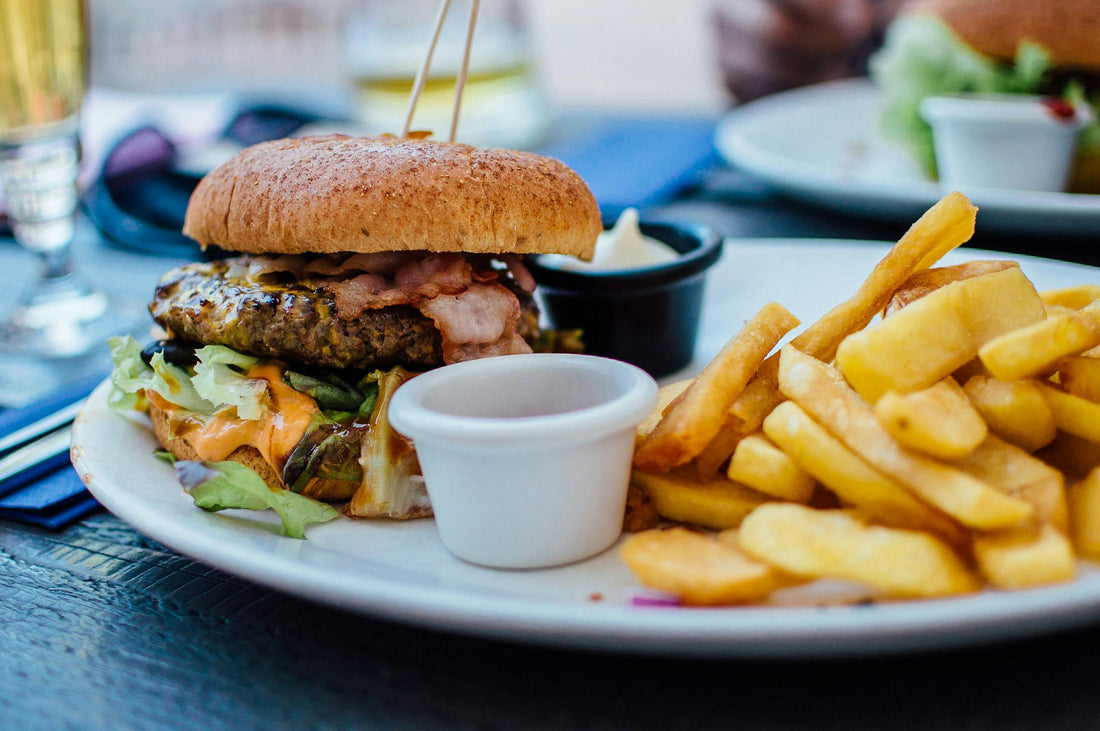
The Truth About Cheat Meals
Share
Cheat meals are planned breaks from a strict diet where people eat whatever they want. This could be a big meal, a full cheat day, or even a weekend of relaxed eating. Many people believe cheat meals can boost metabolism, improve mood, and help them stick to their diet. Fitness influencers often post photos of large, indulgent cheat meals online, which makes the practice seem very popular and normal.
Can Cheat Meals Help With Weight Loss?
Surprisingly, cheat meals might not ruin your progress. In fact, when used properly, they can still result in weight loss. Research shows that people who followed energy-restricted diets (eating fewer calories) but included cheat meals still lost weight. This happened because their overall weekly calorie intake was still lower than usual. In other words, they were still in a calorie deficit.
But this doesn’t mean you can overeat often. The key is that the cheat meal or cheat day is part of a larger plan where most days involve healthy eating with fewer calories.
Do Cheat Meals Boost Your Metabolism?
One common belief is that cheat meals “reset” your metabolism or prevent it from slowing down. During dieting, your body adapts by lowering your resting metabolic rate (RMR), which can make further weight loss harder.
Some studies show that short breaks from dieting may slow down this metabolic adaptation. However, the evidence about cheat meals doing this is unclear. Most cheat meals are too short (one meal or day) to make a big impact. Longer diet breaks (several days or weeks with higher calorie intake) might be more effective for this purpose.
Do Cheat Meals Help You Keep Muscle?
For people doing resistance training, such as lifting weights, cheat meals might help maintain muscle. This is because eating more carbs could support muscle recovery and reduce fatigue.
However, studies show mixed results. Some people did preserve lean muscle while losing fat, but not all studies found this. Cheat meals alone are not a magic trick for keeping muscle. Regular strength training and eating enough protein are still the most important factors.
What About Exercise Performance?
Some people think eating a high-carb cheat meal before a workout can improve performance. This might be true in very intense workouts where muscle energy stores are low. But in general, studies didn’t find big improvements in strength or endurance from cheat meals. In short, they might help a bit if you’re very active, but they’re not essential.
Can Cheat Meals Help You Stick to Your Diet?
Yes, they might. When dieting for a long time, people can feel tired, cranky, and constantly hungry. Cheat meals may give a mental break and reduce food cravings. Some studies showed that people who had cheat meals felt more satisfied and were less likely to quit their diet.
But again, this depends on how the cheat meals are used. If you see them as a planned, flexible part of your diet, they can help with motivation. If you feel guilty afterward or binge uncontrollably, they may do more harm than good.
What Are the Risks?
While cheat meals can help some people, they are not risk-free. Social media often shows huge, high-calorie cheat meals, sometimes over 1000 to 9000 calories. This can lead to binge-like behavior, where people eat a lot and then try to "fix" it with strict dieting and over-exercising. This pattern can harm your relationship with food and may lead to disordered eating habits.
In fact, studies have found links between frequent cheat meals and signs of eating disorders, especially when the meals are used as rewards or when people feel out of control during them.
How to Use Cheat Meals Safely
- Plan them ahead: Spontaneous cheat meals can turn into binges. A planned cheat meal is more likely to stay under control.
- Keep it reasonable: Enjoy your favorite foods, but try not to go overboard.
- Listen to your body: Eat until you're satisfied, not stuffed.
- Don’t punish yourself afterward: Skip the guilt. A single meal won’t ruin your progress.
- Focus on long-term habits: A good diet should be flexible enough that you don’t feel the need to “cheat” often.
Final Thoughts
Cheat meals can be part of a successful weight-loss plan if used wisely. They may help you stay motivated, reduce cravings, and even improve mood. But they should not become a habit of overeating followed by guilt or punishment. Like any strategy, they work best when part of a balanced and mindful approach to eating.
If you’re unsure whether cheat meals are right for you, consider talking to a dietitian or fitness coach who can guide you based on your goals and habits.
